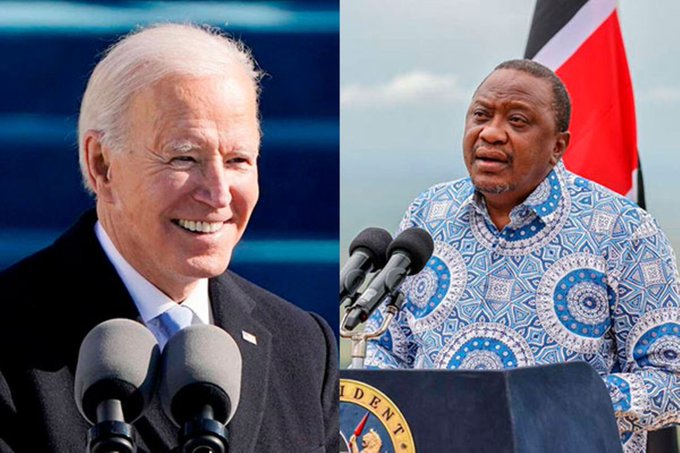The Biden administration launched a new strategic trade and investment partnership with Kenya on Thursday, replacing an agreement signed by ex-President Donald Trump’s administration with Nairobi.
According to the US Trade Representative’s Office, the US and Kenyan governments will begin work within three months to develop a roadmap for engagement in ten areas, including agriculture, digital trade, climate change action, and trade facilitation and customs procedures.
The launch follows the US government’s announcement last year that it would review Trump-era bilateral trade negotiations with Kenya over a potential free trade agreement in 2020. (FTA).
Mr. Trump and President Uhuru Kenyatta announced their intention to begin formal trade talks in February 2020, kicking off activities that were expected to culminate in a deal within two years and ahead of the August 9 General Election.
The bilateral talks were put on hold following the American presidential elections in November 2020.
Mr. Biden was sworn in as US President in January 2021, ending Mr. Trump’s turbulent four-year presidency.
A change of guard in the White House has cast doubt on the FTA deal, with Mr Biden reversing many of the Trump administration’s policies.
“Kenya and US governments will commence working within three months to develop a detailed roadmap for engagement in each of these issues,” Trade Cabinet Secretary Betty Maina said in a statement on Thursday.
The ten talking points will include trade support for women and youth-owned businesses, worker rights promotion, anti-corruption efforts, integrating small and micro businesses into international trade, and improved regulatory services.
The United States will also seek to enforce a 2014 agreement that established “a legal framework for the exchange of information and evidence to assist countries in the enforcement of customs laws, including duty evasion, trafficking, proliferation, money laundering, and terrorism-related activities.”
Analysts quoted in the US press believe Mr Biden’s plan is more comprehensive and long-term than Mr Trump’s, which focuses on tax cuts, regulations, and tariffs.
After receiving over 5,000 comments, the US released a list of objectives to guide bilateral talks with Kenya in May 2020.
Instead of pursuing a phased approach, the US Chamber of Commerce stated at the time that the trade talks with Kenya should result in a single, comprehensive agreement that removes barriers to trade and investment.
According to the business lobby, the talks should eliminate all tariffs and address non-tariff barriers for industrial and farm goods, such as US tariffs on steel and aluminum imports from Kenya, as well as expand market access for remanufactured goods exports.
It also demanded commitments to ensure US access to Kenya’s services market, as well as to address intellectual property rights and enforcement in relation to patents, copyrights, trademarks, and trade secrets.
Furthermore, the agreement should prohibit forced technology transfers, include an investor-state dispute resolution mechanism, and formalize a joint commitment to good regulatory practices.
To facilitate digital trade, it should establish a mutual right for all sectors to transfer and store data across borders, prohibit data localization, and prohibit customs duties and taxes on electronic transmissions.
The US is concerned about China’s investments in Africa and is negotiating a free trade agreement with Kenya, which would be the first in Sub-Saharan Africa.
The Biden administration wants to reduce China’s share of global trade.
Nairobi wants to reach an agreement with Washington before the Africa Growth and Opportunity Act (Agoa) expires, which allows Sub-Saharan African countries to export thousands of products to the United States without tariffs or quotas until 2025.
Mr. Biden’s “Build Back Better” blueprint aims to rescue the US economy from the ravages of Covid-19 by reshaping the world’s largest economy and countering China’s rise.
His policy mix includes raising corporate taxes to fund innovation and buy American products to expand job opportunities; tax incentives and penalties to encourage US firms to keep and create jobs in the US; and $2 trillion in clean energy investment. He is betting on creating millions of jobs by building infrastructure such as roads and addressing climate change, which Mr Trump has given little attention to.
The Biden plan indicates that the US will seek to protect American firms in its efforts to shore up manufacturing and gain a larger share of global trade currently held by China, while also pushing for bilateral trade deals.



















